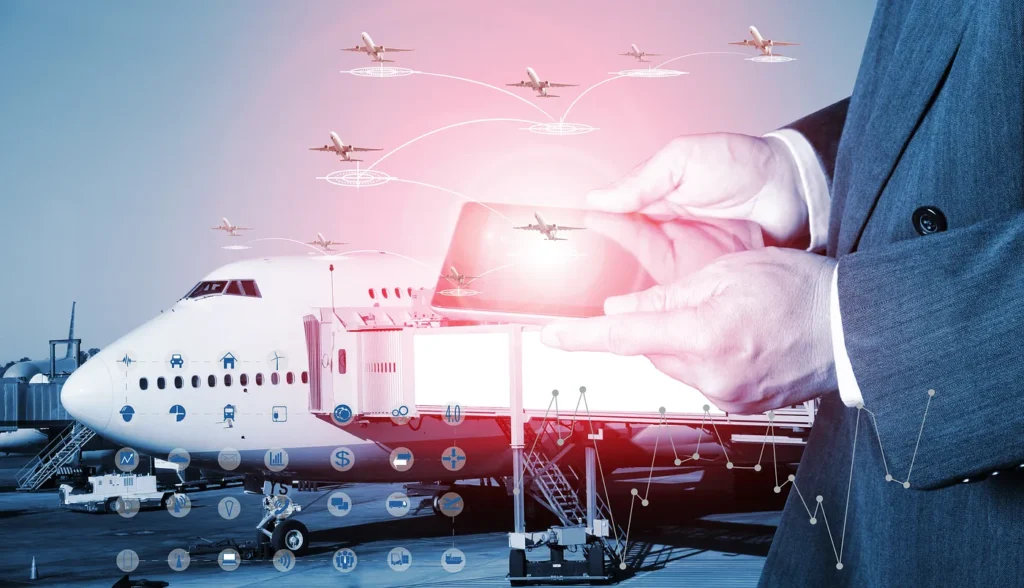Written by Ravindrababu T and mckimmer

In the fiercely competitive airline industry, the race to deliver a frictionless passenger experience is on. Air travel, once merely about getting from A to B, is now a journey laden with potential touch-points where airlines can either win loyalty or lose business. The key to success lies in leveraging machine learning, artificial intelligence (AI), and a robust data strategy to not only streamline this journey but also to unlock avenues for increased revenue.
Frictionless Travel with AI and Machine Learning
The application of AI and machine learning in the airline industry is transforming the passenger experience into a seamless journey. By analyzing vast datasets, these technologies can predict individual customer preferences, optimize operations, and deliver personalized services that reduce friction at every touchpoint.
From the moment a customer considers travel, machine learning algorithms are at play, powering recommendation engines that suggest flights based on past behavior, current trends, and predictive analytics. As the customer books a ticket, dynamic pricing models kick in, using historical data to adjust fares in real-time, ensuring competitiveness while maximizing profit margins.
The convenience continues with web check-in, where AI-powered systems pre-populate personal details, predict the best seats based on previous choices, and even suggest optimal travel itineraries. AI chatbots and virtual assistants provide round-the-clock customer service, handling inquiries and solving issues before they escalate into pain points.
At the airport, the benefits of a data-driven approach become even more tangible. Machine learning algorithms assist in managing queue lengths at check-in counters and security checks by predicting peak times and optimizing staffing schedules. Baggage handling is another area ripe for AI intervention, with systems designed to track luggage and predict and prevent mishandling, ensuring that bags are as likely as passengers to reach their intended destination.
Unlocking Revenue Through Personalized Experiences
Machine learning not only enhances customer experience but also presents new opportunities for ancillary revenue. By analyzing in-flight purchase patterns, airlines can tailor their food and beverage offerings to suit the preferences of the passengers on board. They can also adjust the inventory of duty-free merchandise in real time, ensuring that the most popular items are always stocked.
The predictive power of AI extends to maintenance operations as well. By forecasting the need for aircraft repairs, airlines can reduce downtime and prevent delays, thereby preserving revenue and protecting the brand reputation.
A Progressive Data Strategy
At the heart of these advancements is a progressive data strategy. By collecting and integrating data across all customer touchpoints, airlines can build comprehensive profiles and craft individualized experiences that delight passengers. Secure data handling and privacy compliance are paramount, ensuring that customer trust is maintained.
Moreover, data insights are shared across the organization, breaking down silos and fostering a culture of continuous improvement. This integrated approach means that feedback collected post-flight can directly influence operational changes, from staffing levels to the layout of the cabin.
In conclusion, the integration of AI, machine learning, and a forward-thinking data strategy is revolutionizing the airline industry. By creating frictionless experiences for passengers and unlocking new revenue streams, airlines that invest in these technologies are not just elevating their service — they’re redefining the very nature of air travel. As we look to the skies, it’s clear that the future of flying is not just about faster planes but smarter, data-driven experiences that begin long before takeoff and extend well beyond landing.


